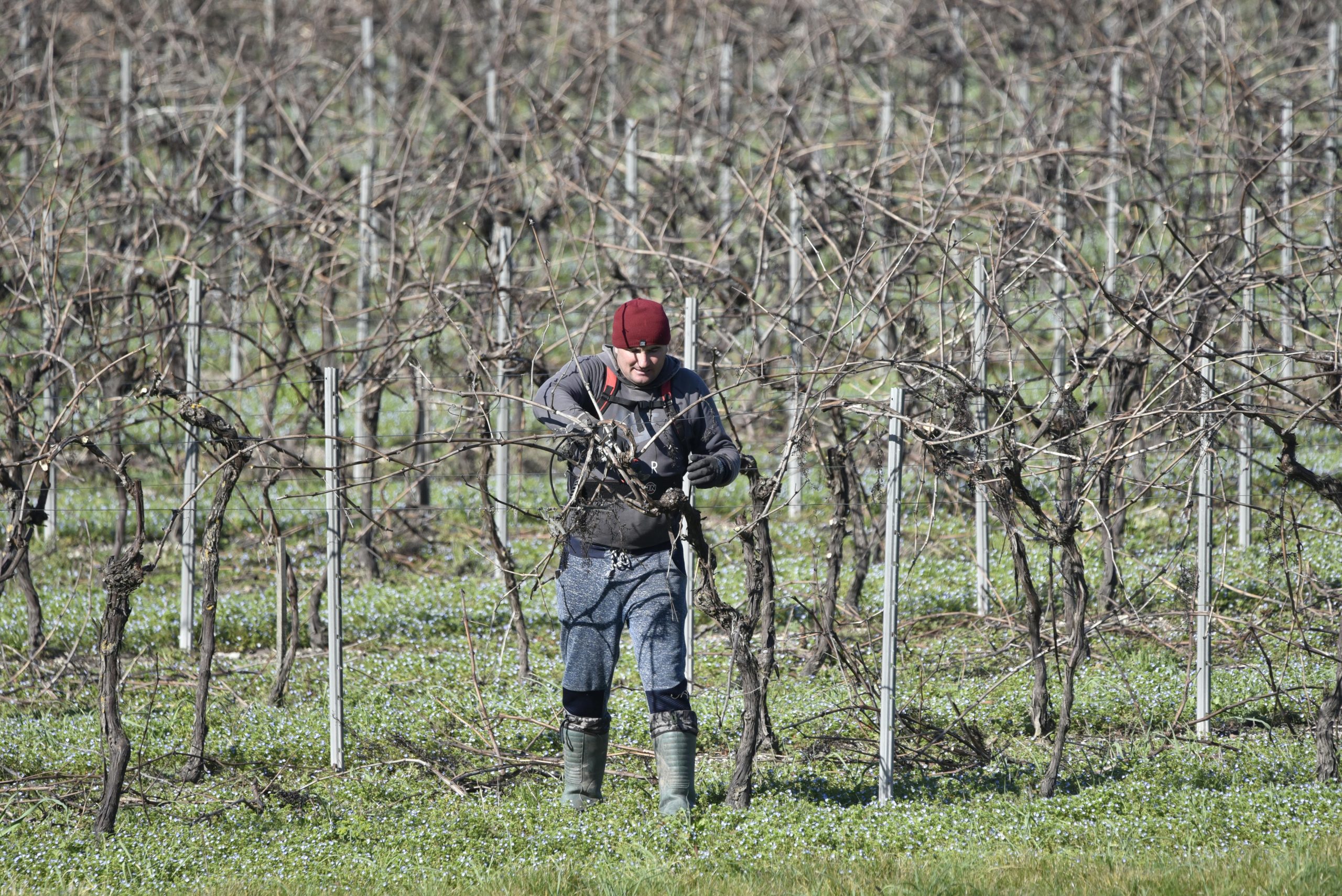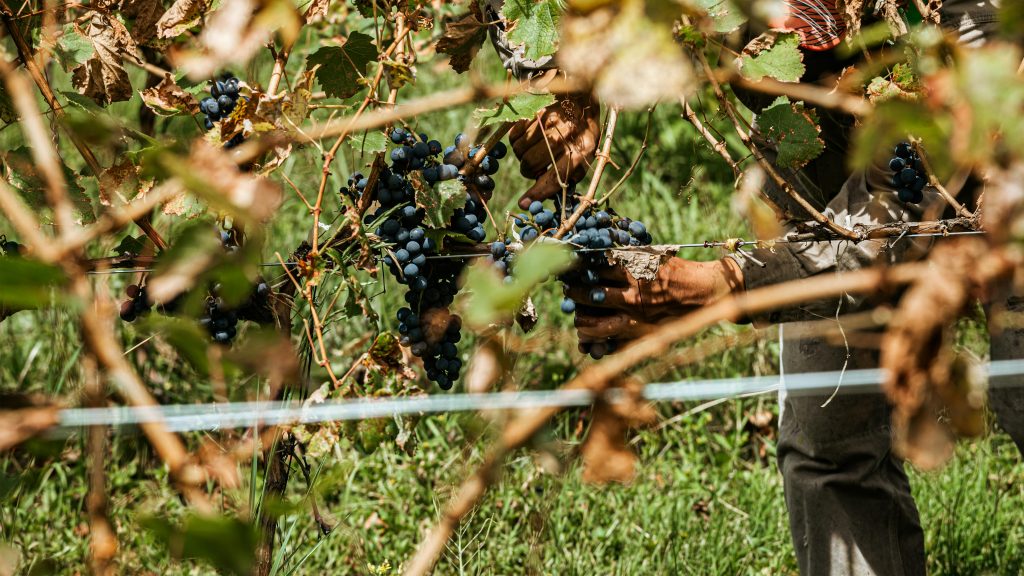
So, you’ve decided to start your own vineyard. Congratulations! Whether it’s a backyard dream or a larger venture, starting a vineyard in Portugal is an exciting journey. But as romantic as tending vines and imagining your first harvest might be, there’s a lot to consider—especially when it comes to hiring help.
Portugal has some pretty strict rules about hiring workers, even for small projects. If you’re not careful, what starts as a simple job, like planting vines or fixing trellises, can turn into unexpected costs or legal obligations. I’ve been there, and trust me, learning the rules the hard way isn’t fun.
Let me share what I’ve learned, so you can focus on making your vineyard a success without getting caught in legal red tape.
Why Knowing the Rules Matters
Hiring workers for your vineyard isn’t just about paying them—it’s about taking responsibility for their safety and the legal framework that comes with it. In Portugal, even if you hire someone for a one-time job you are always responsible for ensuring their safety while they’re on your property.
If a worker gets injured while planting vines, pruning, or repairing trellises, and they don’t have insurance, the financial and legal consequences fall on you. This includes covering their medical expenses and, in some cases, compensating them for lost wages. It doesn’t matter whether they’re a casual helper or a professional contractor—the responsibility is yours as the property owner.
Additionally, if the worker earns more than 50% of their annual income from you, the law designates you as their main employer (entidade contratante). This adds another layer of obligation: you’ll need to pay 10% of their social security contributions.
In short, whether you’re hiring someone for a day or a year, understanding your responsibilities under Portuguese law is crucial. It protects both you and the workers who are helping bring your vineyard to life.

1. Ask the Right Questions Before Hiring
Before you hire anyone, have an honest conversation. It might feel awkward, but asking the right questions can save you headaches later. Here’s what to ask:
- Do you work for other clients?
If they don’t—or can’t prove it—you’ll likely be considered their main employer. This is especially common with seasonal vineyard help. - Do you have insurance?
If they get injured on your property and don’t have their own insurance, you’re on the hook for medical bills and other costs. - Can you issue an invoice?
Only hire workers who are legally registered and can provide a proper invoice (fatura-recibo). This keeps you on the right side of the law.
2. Understand the Law
The key legislation to know is the Código dos Regimes Contributivos do Sistema Previdencial de Segurança Social. It’s part of Lei n.º 110/2009, de 16 de setembro, which governs social security contributions in Portugal.
Here’s what it means for you:
- If a self-employed worker earns more than 50% of their income from you, you’re legally required to pay 10% of their social security contributions.
- You need to ensure their working conditions are safe.
- You’re responsible for temporary or ongoing insurance if they don’t have it.
Even if your vineyard is small, these rules apply. It’s not about the scale of your project; it’s about the nature of the working relationship.
3. Safety First
Vineyard work can be risky. From climbing ladders to using sharp tools, accidents can happen. And if they do, you need to be prepared.
How to Protect Yourself:
- Check Insurance: Ask workers for proof of their insurance. If they don’t have any, consider purchasing temporary coverage for the duration of the job.
- Inspect Tools and Equipment: Make sure ladders, tools, and any other equipment are safe to use.
- Create a Safe Environment: Clear debris, secure unstable structures, and provide any necessary safety gear.
By taking these steps, you’re not just protecting your workers—you’re protecting yourself from liability.
4. Use Written Agreements
Even for small jobs, having a written agreement is a smart move. It doesn’t need to be complicated—just a clear document that outlines:
- The scope of the work (e.g., planting, pruning, or trellis repairs).
- The worker’s responsibilities, like providing their own insurance and declaring their income.
- A statement that you are not their main employer.
This shows you’ve made an effort to follow the law and can help protect you if there’s ever a dispute.

5. Hire Smart
One of the easiest ways to avoid legal issues is to work with registered companies. While they may cost more upfront, companies handle their own social security contributions, taxes, and insurance. This takes the burden off your shoulders.
Alternatives to Consider:
- Spread Out the Work: Avoid hiring the same person repeatedly for different jobs. Social Security might classify you as their main employer if the relationship becomes too regular.
- Use Seasonal Contracts: For harvest time or other major projects, consider hiring workers under short-term contracts through an agency.
6. Plan for Hidden Costs
Hiring help always comes with some costs beyond the worker’s pay. Here’s what to budget for:
- Social Security Contributions: If you’re their main employer, expect to pay 10% of their income in contributions.
- Insurance: Temporary coverage can protect you from financial liability in case of accidents.
- Tools and Materials: Even if workers bring their own tools, you might need to provide materials or equipment.
My Story: Learning the Hard Way
When I hired a painter to plaster and paint a new wall, I thought I was doing everything right. I insisted on getting an invoice because I wanted to follow the law and keep things above board. What I didn’t realize was that this worker rarely gave invoices to his other clients. By being one of the few people he billed, I inadvertently became his main employer in the eyes of Segurança Social.
A few months later, I received a bill for €400 to cover his social security contributions. I was stunned. He had other clients, but because they worked under the table and didn’t ask for invoices, I was left holding the bag. It was an expensive lesson, but it taught me how crucial it is to understand the worker’s situation and ask the right questions upfront.
Starting Your Vineyard the Right Way
If you’re still planning your vineyard, you might enjoy this article: Backyard Vineyard Ideas for Small Spaces: Make Every Grape Count. It’s packed with tips for maximizing space and making your vineyard dream a reality.
The Bottom Line
Starting a vineyard is a rewarding journey, but it comes with its share of challenges. By understanding the rules for hiring workers in Portugal, you can avoid costly mistakes and focus on what matters—creating a beautiful vineyard and enjoying the fruits of your labor.
Take it from me: doing things legally is always the best choice, even when it feels complicated. With a little planning and the right precautions, you can hire help confidently and build the vineyard you’ve always dreamed of.